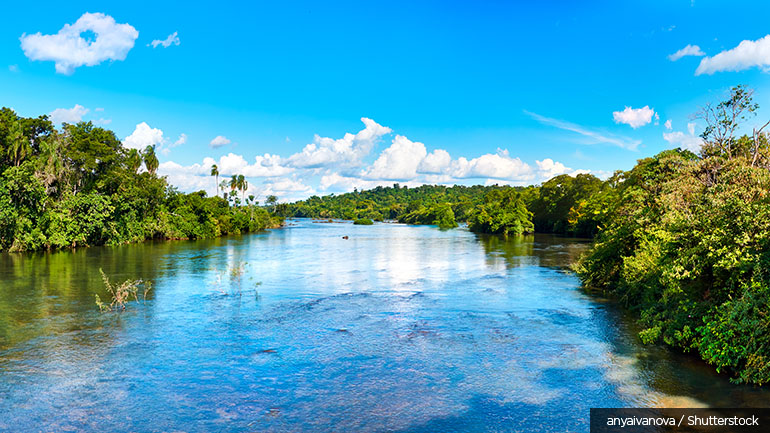
Context
Argentina's diverse landscapes, including the Pampas, Chaco region, and Yungas forests, are under threat from deforestation, biodiversity loss, and land degradation. Additionally, the country faces significant climate challenges such as increasing droughts, extreme weather events, and changing rainfall patterns, which further exacerbate these environmental issues. The Sustainable Recovery of Landscapes and Livelihoods project aims to address these challenges by improving ecosystem management and enhancing the resilience of local communities.
Approach
PROGREEN’s approach involves investments in landscape restoration and management, capacity-building, landscape modeling, the promotion of sustainable practices, and the development of value chains that align with conservation objectives. PROGREEN supports both country investment initiatives and knowledge programs designed to enhance ecosystem management and bolster the resilience of local communities in the Gran Chaco and Yungas ecoregions.
A commitment to inclusivity is reflected in our training programs, where nearly half of the participants in biodiversity training were women, ensuring that gender perspectives are integrated into our conservation efforts. Another notable example of this is the Indigenous Peoples Plan for the Yungas Landscape, where indigenous communities played a crucial role in developing the management plan for the biosphere reserve. Selecting and implementing Community Driven Development subprojects that provide direct benefits to local organizations and farmers have already begun. Our knowledge initiatives involve assessing four regional value chains and developing strategies to tap into existing and new markets.
Results
Progress has been made in several areas. Infrastructure improvements and strategic planning efforts are underway to enhance the management of national parks and protected areas, supported by the acquisition of essential equipment. Since November 2022, 17 community driven development subprojects are in progress, focusing on promoting sustainable landscape management. Project emphasis was placed on training vulnerable populations, leading to 49 individuals getting certified in food safety management and 322 participants gaining skills in rural tourism, agroecology, and more.
Since July 2023, training initiatives successfully equipped 53 individuals, including 31 members of rural communities, with skills in wildlife monitoring. 55 people were trained in sustainable meat and timber production in the Chaco region. Additionally, 26 individuals learned about designing multifunctional landscapes, 19 trained in managing carob plantations, while 22 were educated on biodiversity corridors. Additionally, over 200 individuals were trained in monitoring practices for birds and mammals in livestock systems and carob plantations throughout the Argentine Chaco between 2023-2024.
Analytical work, such as an analysis of fiscal incentives was presented to stakeholders and development partners, facilitating collaboration with organizations like the Inter-American Development Bank (IDB). An assessment of key value chains, including tourism, timber, livestock, and honey, has also been completed, with strategies proposed for their sustainable development.
Overall, PROGREEN’s investment and knowledge programs in Argentina are aligned with the country’s environmental commitments, contributing to global biodiversity frameworks and national adaptation plans. Despite some delays due to governmental changes in 2024, significant progress has been made in enhancing ecosystem management and supporting sustainable livelihoods.